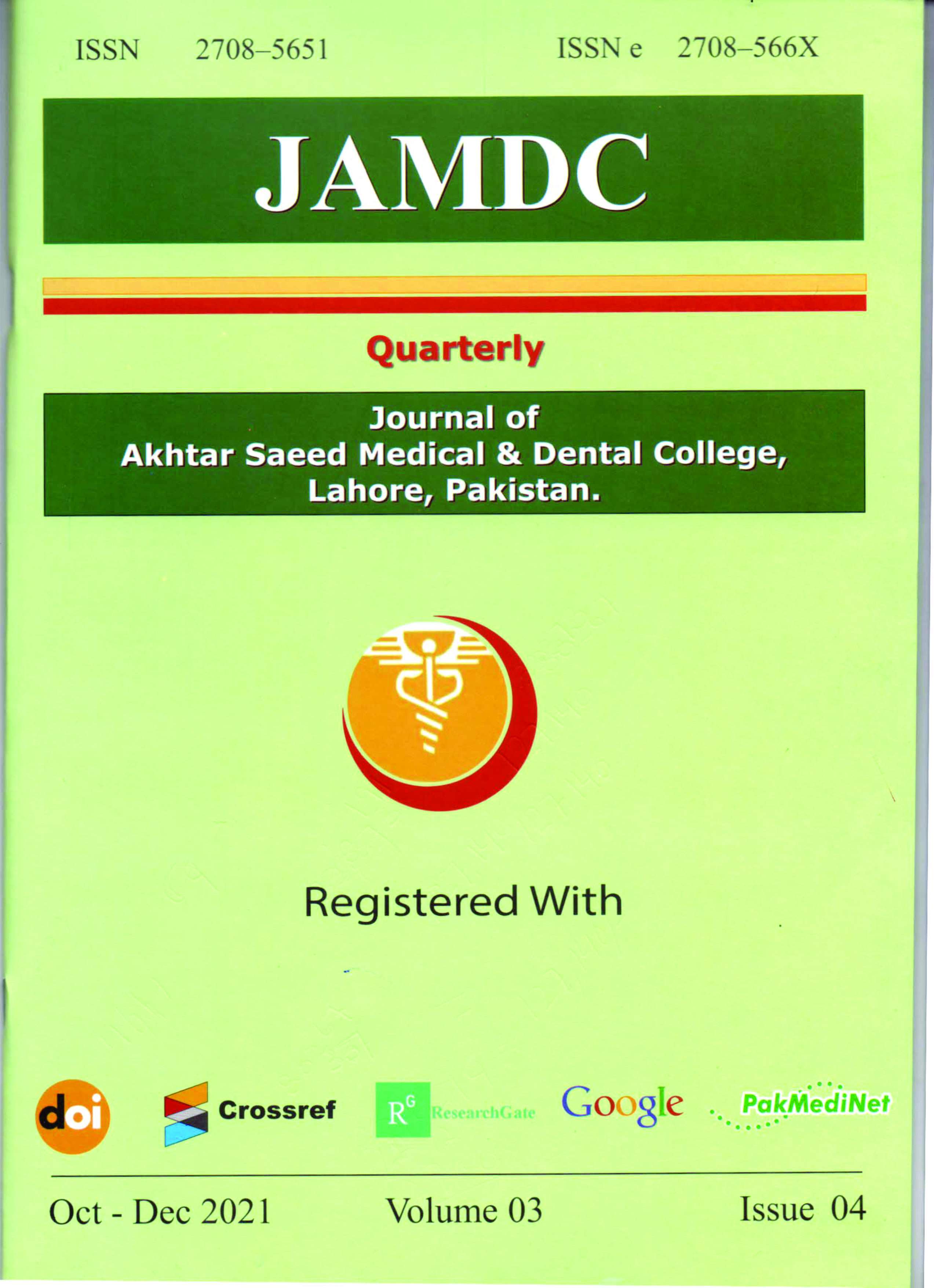FREQUENCY OF ENDOMETRIAL HYPERPLASIA IN OBESE PATIENTS OF REPRODUCTIVE AGE PRESENTING WITH ABNORMAL UTERINE BLEEDING
Main Article Content
Abstract
Background:
Among women of reproductive age, one of the most common gynecological problems is abnormal uterine bleeding (AUB). The prevalence rate of this disorder is up to 30%. The causes of AUB include systemic, physician induced, hormonal related to age and endometrial pathologies like polyps, submucous myomas, hyperplasia, and endometrial carcinoma. It is always important to suspect and evaluate for endometrial pathologies. This study aimed to determine the frequency of endometrial hyperplasia in obese women of reproductive age presenting with abnormal uterine bleeding.
Material and Methods:
This cross-sectional study was conducted at Obstetrics and Gynecology Department, Jinnah Hospital Lahore from December 25th 2018 to June 25th 2019. In this study, 215 obese women with abnormal uterine BMI ≥ 27 Kg/m2 were included. Transvaginal ultrasound was performed to see the endometrial thickness and endometrial tissues were obtained by Dilatation and Curettage (D&C) method for histological findings of endometrial hyperplasia.
Results:
The range of age in subjects of this study was from 18 to 35 years with a mean age of 30.33±2.66 years, mean parity 1.74±1.57, mean weight 82.99±8.09 Kg, mean height 1.61±0.10 meters, mean BMI 32.10±3.13 Kg/m2 and mean endometrial thickness was 10.153±2.39 millimeter. Endometrial Hyperplasia was seen in 9.3% of patients.
Conclusion:
The frequency of endometrial hyperplasia in obese women presenting with abnormal uterine bleeding was 9.3%. A high body mass index is the leading risk factor for endometrial hyperplasia in premenopausal women

